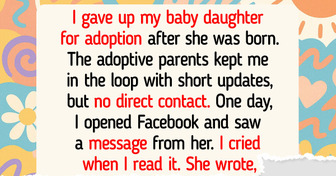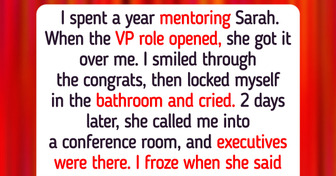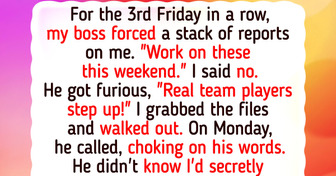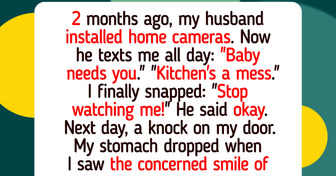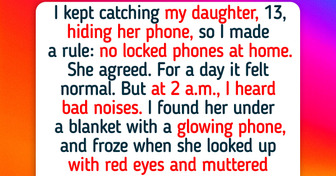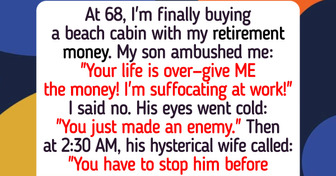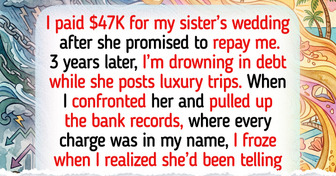I Refuse to Pay for Food I Ate While Babysitting My Own Grandchildren
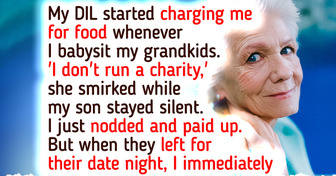
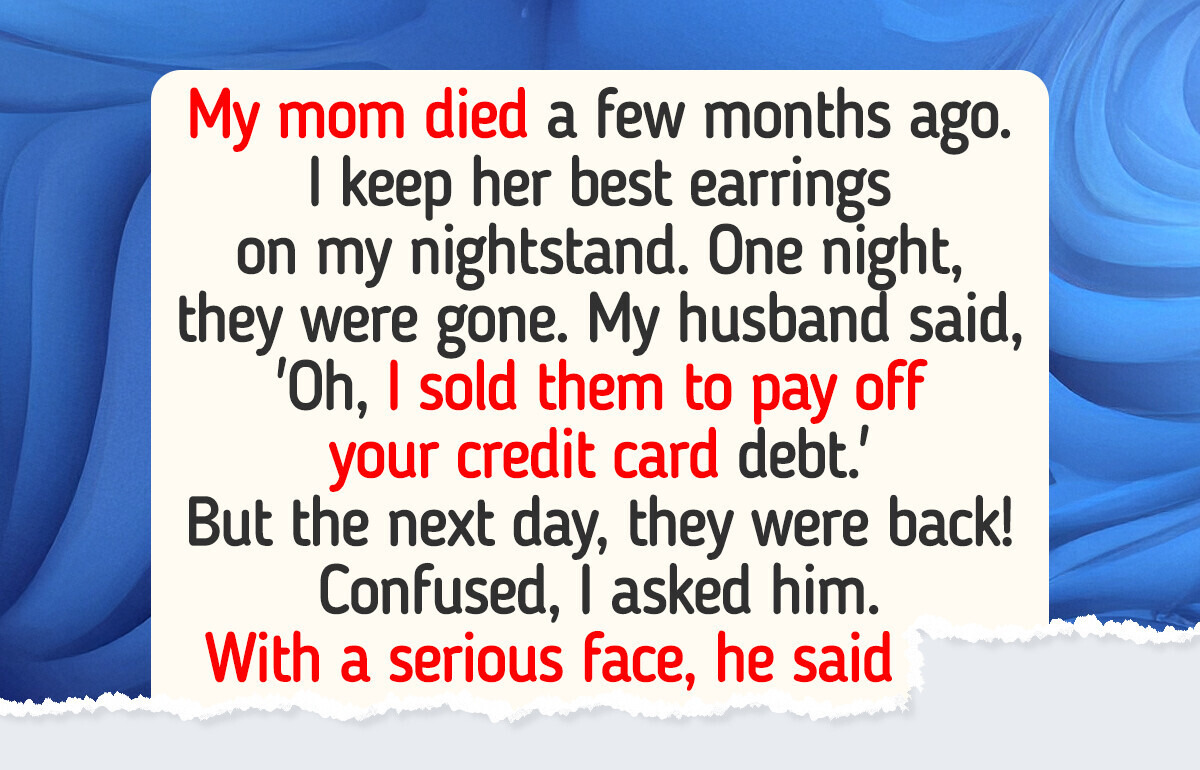
In any marriage, trust, respect, and support are the foundation of a healthy relationship. Yet, when these qualities are missing, it can cause friction and uncertainty. Problems may stem from insecurities, power imbalances, or mental health struggles. Recently, one of our Bright Side readers reached out with an emotional letter, asking for advice on how to deal with her husband’s concerning actions.
Hey Bright Side,
I’m 35, and my husband’s 40. We’ve always gotten along pretty well with hardly any issues. He’s always been thoughtful and caring, doing little things to show he loves me, and I always try to do the same for him. But lately, his behavior has been really weird, like, not at all like he used to be. I’ve been noticing more and more stuff that’s starting to bug me, and I just can’t ignore it anymore.
Like, I found out on Facebook that one of our old classmates got into a pretty bad car accident. So, I told him about it, and he just shrugged and said he didn’t really know her that well, so it wasn’t a big deal. I mean, I get that he might not have been close to her, but the way he just brushed it off, especially with how serious her injuries were, kind of shocked me.
Then, there was this one Halloween. I had just come home after an exhausting day at work, completely drained, and all I wanted was a moment to relax and recharge in the shower. I was standing there, the warm water soothing me, when suddenly, out of nowhere, I saw a figure peek around the shower curtain. It was my husband, but not the way I expected him. He had on this horrifying Halloween mask, one of those grotesque, over-the-top ones that look like they came straight out of a nightmare. My heart stopped, and in an instant, I was hit with a wave of panic. I screamed, completely caught off guard, and ended up breaking down in tears.
Instead of apologizing or comforting me, he just laughed, as if it were all some huge joke. Then, without a second thought, he turned around and went back to the couch to watch TV, leaving me there in shock, feeling utterly alone.
Oh, and last year, my mom passed away. We were really close, and I always keep her favorite earrings on a table with her photos around it. One day, they just disappeared. So I asked him if he knew where they were, and he casually said, ‘Oh, I sold them to pay your credit card debt.’ Then, about an hour later, they just magically reappeared. I asked him what was going on, and he said, ‘It was just a prank!’ and acted like it was no big deal, laughing at my reaction.
I love him, but this change in him is really throwing me off, and I’m honestly kind of worried. I don’t know if I should talk to a therapist about it or how to even bring this up to him. What should I do?
Thanks,
Krista
Thanks, Krista, for sharing the issues you’re facing with your husband. We’ve come up with five tips to support you as you work through this tough situation.
It’s essential to talk to your husband in an open and honest way. Choose a calm moment to share how his recent behavior has affected you, keeping the conversation free of blame or accusations. Use phrases like “I felt upset when...” to express your feelings without putting him on the defensive.
Clearly communicate what you need from him moving forward, whether it’s more empathy, support, or simply stopping the hurtful jokes. Keep in mind that the goal is to reconnect and rebuild trust, so focus on working through this together.
In any relationship, it’s vital to set clear boundaries that both people understand and honor. Take some time to think about what behaviors you cannot tolerate and discuss these limits with your husband. Let him know that while humor and playful jokes are part of a relationship, there’s a boundary that shouldn’t be crossed, especially regarding sensitive issues like loss and personal items.
Stand firm on your expectations and make it clear that respect and kindness are non-negotiable. Although this conversation might be tough, it’s an important step to protect your emotional health.
Given the noticeable shift in your husband’s behavior, it might be helpful to reach out to a professional therapist. A therapist can offer a safe, neutral environment for both of you to voice your thoughts and emotions. They can also provide techniques to improve communication and help you better understand each other’s viewpoints.
Proposing couples therapy doesn’t indicate that your relationship is falling apart—it shows your willingness to work on it and make it better. Often, having an outside perspective can reveal deeper issues that may not be immediately obvious.
Work on rebuilding emotional closeness by participating in activities that promote understanding and empathy. Spend meaningful time together, whether doing shared hobbies or trying new things. Initiate conversations about more personal matters, like your feelings, hopes, and concerns.
This approach can help you both reconnect emotionally and might uncover the reasons behind his recent actions. By creating an environment where both of you feel safe to be vulnerable, these issues can be addressed with more empathy.
During this difficult time, focus on maintaining your mental and emotional well-being. Set aside time for self-care practices that help you feel grounded and supported, whether it’s engaging in hobbies, exercising, or spending time with friends and family who uplift you. Take the opportunity to reflect on your own needs and limits, and consider journaling or meditating to process your emotions.
By gaining clarity on your own feelings and values, you’ll be better equipped to make thoughtful decisions regarding your relationship. Always remember, your well-being is just as important as the relationship itself.
Navigating challenges in a relationship can be tough, but remember that your feelings and well-being matter. If you’re looking for more insights on how to handle tricky relationship situations, check out this article on dealing with unexpected pranks in relationships. It might offer some helpful advice as you work through your own journey.


